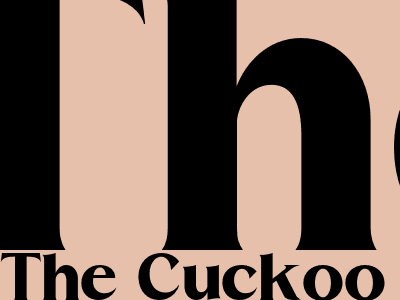
The Cuckoo: A Harbinger of Spring and a Symbol of Deception
A Trickster in the Bird World
The cuckoo, a bird renowned for its parasitic breeding habits, has captivated the human imagination for centuries. This clever avian has evolved a unique strategy for ensuring the survival of its offspring, relying on other birds to raise its young. The cuckoo's deceptive nature has earned it a reputation as a trickster in the bird world, a reputation that has been immortalized in folklore and literature.
Masters of Disguise
Cuckoos possess a remarkable ability to mimic the eggs of the birds they parasitize, ensuring that their own eggs blend seamlessly into the host's nest. This intricate mimicry extends beyond the egg's appearance to its size, shape, and even texture. The cuckoo's egg is a masterpiece of evolutionary deception, enabling the cuckoo chick to gain access to the host's care and resources.
Once the cuckoo chick hatches, it employs another cunning strategy to increase its chances of survival. It instinctively evicts the host's eggs or chicks from the nest, ensuring that it has exclusive access to the food and attention provided by its unwitting foster parents.
Cultural Symbolism
The cuckoo's parasitic behavior has not gone unnoticed by humans. Throughout history, the cuckoo has been associated with deception, trickery, and even infidelity. In ancient Greek mythology, the cuckoo was seen as a symbol of unfaithfulness, as the bird's reputation for laying its eggs in other birds' nests mirrored the behavior of unfaithful wives.
In modern times, the cuckoo remains a potent symbol of deception. The term "cuckold" is still used to refer to a man whose wife has been unfaithful, a testament to the enduring cultural significance of the cuckoo's behavior.
Ecological Importance
Despite its reputation as a trickster, the cuckoo plays an essential role in the ecosystem. Cuckoo parasitism helps to control the populations of certain bird species, preventing them from becoming too abundant. Additionally, the cuckoo's unique reproductive behavior adds to the diversity of the bird world, contributing to the ecological balance of many ecosystems.
Conclusion
The cuckoo, with its parasitic breeding habits and deceptive nature, is a fascinating and enigmatic bird. Its ability to mimic the eggs of other birds and its cunning strategies for ensuring the survival of its offspring have earned it a reputation as a trickster in the bird world. However, beyond its deceptive behavior, the cuckoo also plays an important role in the ecosystem, highlighting the complex and intricate relationships that exist in the natural world.